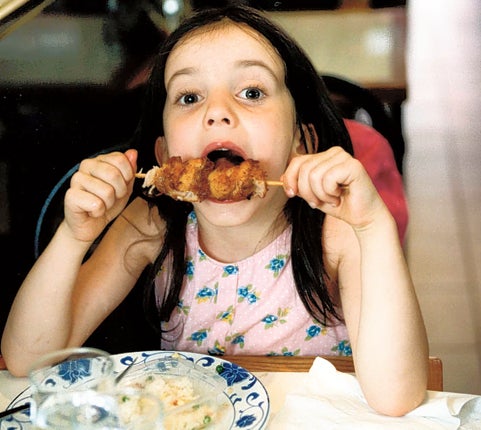John Walsh: Between the sheets with Colonel Gadaffi

According to an interview, Colonel Gadaffi's favourite book is The Outsider by the British author Colin Wilson, a study of alienation, although he's also very keen on Uncle Tom's Cabin. According to my diplomatic sources, the Chinese Prime Minister Wen Jiabao routinely brings Adam Smith's The Theory of Moral Sentiments and Marcus Aurelius's Meditations with him, when he travels abroad. Vladimir Putin, his cultural attachés will tell you, is a fan of Tolstoy, Chekhov and Gogol, revealing a sliver of difference between him and his President, Dmitry Medvedev, who favours Chekhov, Bunin and Dostoevsky.
It's obviously heartening to know that the people who rule our lives are reading something; but is it important that they're reading the right stuff? Does it have a moral effect on them? Last week we learned that Yann Martel has been sending the Canadian Prime Minister, Stephen Harper, a hundred books – starting with Tolstoy, then Orwell – in order to make him a better person. Alan Bennett, in his brilliant fantasy The Common Reader, imagined HM the Queen discovering books, devouring novels and asking embarrassed visiting heads of state what they were reading. It was very funny, but Bennett clearly believed the Queen was much improved by her new obsession, in a way she wouldn't have been by an obsession with philately or manga DVDs.
There's not much evidence that reading did a lot for other monarchs. Elizabeth I evidently loved the theatre, had her own acting troupe, the Queen's Men, and saw them perform at the Globe. She enjoyed the character of Falstaff (in Henry IV, Part II) so much, she asked Shakespeare to write her a play in which the old boozer falls in love. (He did – it was The Merry Wives of Windsor.) But can you imagine her staying in at night and reading Bacon? George I is reputed to have said "I hate all Boets and Bainters," in his heavily adenoidal German. After sampling the works of England's most globally revered writer, George III said to the novelist Fanny Burney, "Was there ever such stuff as [a] great part of Shakespeare? Only one must not say so! But what think you? – what? – Is there not sad stuff? What? What?"
Queen Victoria was an avid reader, and enjoyed meeting writers. When she stayed at Osborne House on the Isle of Wight, a regular visitor was Lord Tennyson, later to be her poet laureate, who owned a house nearby in Freshwater. His long elegy to his friend Arthur Hallam, In Memoriam, helped her in her grief over the death of Prince Albert – a rare example of royally-endorsed literary therapy.
Our present royals regularly receive the cream of British books, hand-picked by the Booktrust charity and sent to Sandringham or Balmoral. It's rare for the charity to hear feedback or cries of rapture from the recipients. Most books probably end up in the guest rooms. I'm aware of only one that the Queen has definitely read. It's The Remains of the Day by Kazuo Ishiguro, offered by an equerry in 1989, when, during a trip abroad, she left the book she had been reading on the helicopter. After getting no response from the monarch in three days, the equerry said he hoped she hadn't found anything objectionable about his recommendation. "Not at all," said the Queen, "but is it really like that? Is that really how they behave and talk, below stairs?"
Politicians are more likely than royals to engage seriously with classic fiction, although their public choices of book can sometimes seem strategic and image-driven. When John Major chose Trollope's The Small House at Allington as his favourite book on Desert Island Discs , he seemed to be harking back to the stolid decencies of the Victorians. But it's nice to discover that Victorian politicians didn't stick to edifying works. When The Woman in White by Wilkie Collins was published in 1860 – the first "novel of sensation," or thriller, it featured abduction, lunacy, incarceration, a plain but plucky heroine, a handsome hero called Hartright, a fat, mouse-stroking Italian villain and a succession of improbable coincidences – William Gladstone cancelled an important dinner and stayed up all night to read it. Would Yann Martell have approved? Or would he have preferred the Victorian sage to have fed his "limited impoverished dreams" with something more seemly?
Eating out with children just got a little easier
There's a new addition to the restaurant guides cluttering my desk – The Harden's Guide to Eating Out with Babies and Toddlers, sponsored by Plum the baby food people. At last, a comprehensive list of where to feed the squalling brats when you're roaming the Lake District or nodding off on the motorway to Cornwall, with extra notes about weaning and the inadvisability of using a bouncy castle after lunch.
The guide tacitly accepts that toddlers have no concept of fine dining, and that the most acceptable food you can give them is something they've eaten a hundred times before.
The Hardens Top 10 is headed by the Giraffe chain, followed by PizzaExpress and Carluccio's. But they include a handful of proper restaurants that try really hard – such as The Wolseley in Piccadilly. Which leaves me picturing the Wolseley's distinguished maitre d' leaning over a high chair, and muttering, "If I may say so, the pureed carrot and parsnip is very good today." And the maitre sommelier shimmering up and saying, "Have you scrutinised the drinks list, sir? Perhaps a nice banana smoothie? A '97 Um Bongo? Or would you prefer a breast?"
j.walsh@independent.co.uk

Join our commenting forum
Join thought-provoking conversations, follow other Independent readers and see their replies